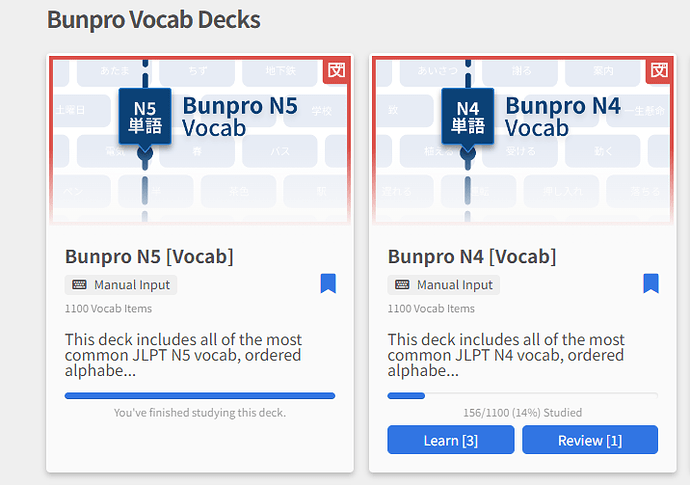Hi @ashe_xo, thanks for getting in contact here on the forums! We are lucky enough to have a community here with a really wide range of opinions and experiences, so you’re bound to find something that resonates with your learning style for sure.
For my own personal opinion, coming from a learner of the language, and not as a Bunpro staff member, I would say that the biggest limiting factor in being able to learn new vocabulary effectively in Japanese is kanji knowledge. What I mean by this is that, once you have a strong base of kanji, the rate that you are able to learn new words increases dramatically… I should say ‘quickly’ instead of ‘effectively’, there are sure to be many effective things if speed of acquisition is not super important.
In languages based on alphabets, there are very few clues within new words about the meaning of something. Of course, there will be common structures like un-, non-, -ness, etc etc which tell you what kind of word you’re looking at, but if the word is ‘vrolness’, unless we know what ‘vrol’ means in the first place, the -ness is not so helpful. Japanese and other logographic languages are a little bit different. Once you know a kanji, you will be at a massive advantage every time you see a new word that contains that kanji. It’s basically like having a picture to remind you of the meaning of a word every time you see it. This has a big positive, and a big negative.
The big positive - Once your kanji knowledge is sufficient, you will be able to learn/retain new words at a pace that would be a lot higher than most other languages in terms of reading.
The big negative - Because the kanji always reminds you of the meaning of the word, you’re cheating yourself out of training your brain to remember what a word means based on sound alone. This will mean that if you’re learning vocab quickly, you’d benefit from doing some pure listening practice as well. A good example of this would be something like ‘balcony’ in English, if I read the word, I sound it out in my head as bal-ko-nee, giving me an opportunity to remember the word based on the way it looks and the way it sounds at the same time. However for Japanese, if I see the word 公式 ‘official’, and if I already know the kanji really well, my brain is gonna know the meaning regardless of whether or not I even remembered that the reading was こうしき. This causes listening to lag behind unless specifically trained (at least it did for me).
Can Bunpro replace Wanikani - Right at this present moment, I don’t think so. The context sentences that we have would be fantastic for solidifying the meanings of words and forming deep memories with them, but that will require quite a bit of time investment for reading as you’re learning. I would however say that you would still get massive benefit out of following the JLPT paths, as most of the words are very common and very useful. I personally frontloaded kanji study before I focused really hard on vocab, so I am a bit biased toward that method.
You will also have to decide whether or not you like mnemonics as well. They absolutely work for some people, but not for others. The goal of most mnemonics is to forget it eventually and replace it with the underlying information, so for me they don’t work too well. Just seems like an extra thing I need to remember just with the goal of forgetting it later.
TLDR: Perhaps we should work on making a vocab deck that follows Wanikani kanji learning  .
.


 )
)

 .
.